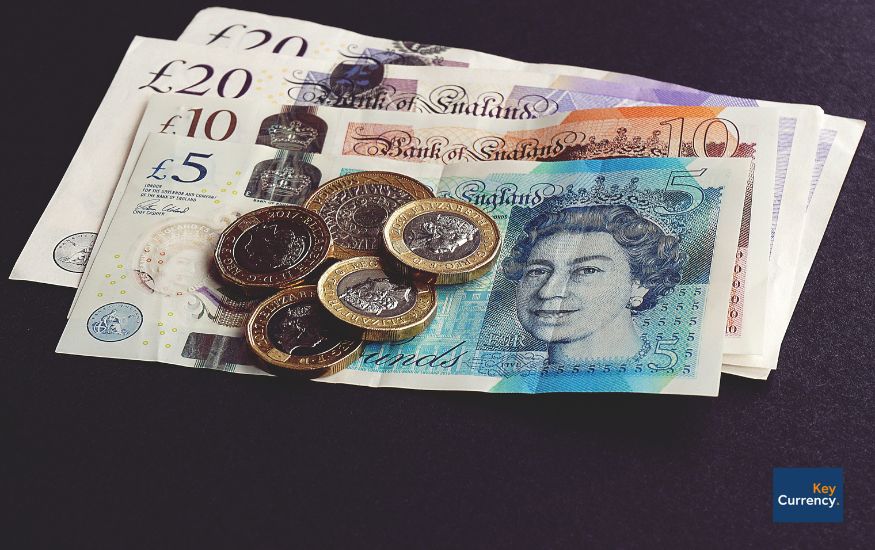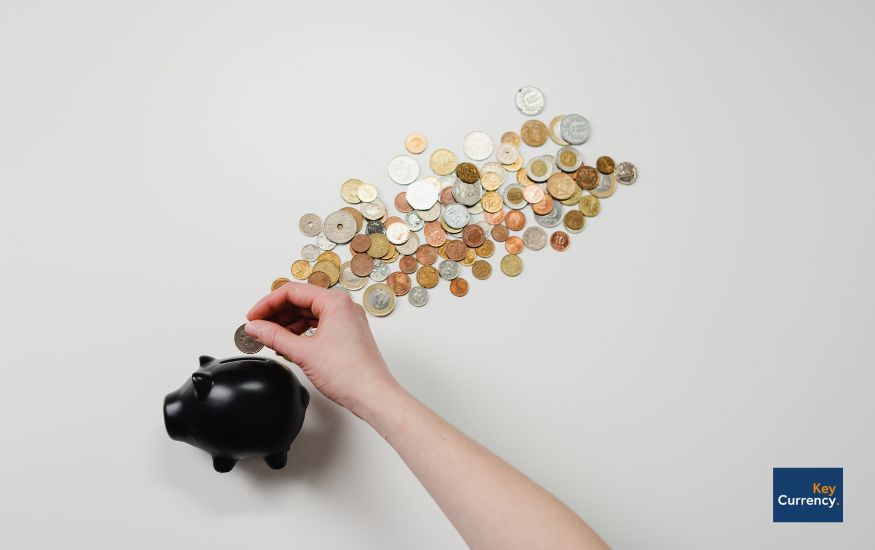
Last Updated on August 11th, 2024
When transferring money, always remember, that safety first!
Your transfer of funds is of the utmost importance, and there are several factors to consider to ensure any international transaction is done most securely.
Whether it is an international or domestic transfer, be sure you have chosen the very best method for your needs.
This article will explore your options and the ways to make sure your money transfer is as secure as possible.
MAKE A SECURE MONEY TRANSFER NOW
What are the Safest Ways to Transfer Money?
Let’s take a look at the most popular ways to make a money transfer:
Online Money Apps
In recent years, using online money apps has become a part of everyday life.
Whether it’s Wise, PayPal, or Revolut, these apps are easy to navigate and quick to deliver and can be used for both domestic and international transfers.
Your app is linked to your bank account which means that transfers can be instantaneous and easy to make.
However, it’s vital to err on the side of caution when sharing your details when using online money apps to make a transfer. Always avoid sending or requesting money from anyone you don’t know or trust.
Money transfer apps don’t allow you to speak to anyone. Support is all online. So if you are sending a large amount, you may want to consider other options.
| Pros | Cons |
| A quick, straightforward method to send money to acquaintances. | Can’t speak to anyone, fees may apply to credit card transfers; payments are usually non-refundable; potential association with fraudulent activities. |
Bank Transfers
Bank transfers, which can also be known as electronic funds transfers, are a fast and efficient way to send money directly from one bank account to another.
This method is secure, as it involves regulated financial institutions handling the transfer.
International bank transfers can be done online through your bank’s online banking system, making it convenient and accessible.
However, fees and exchange rate charges tend to be higher than other providers, which can drastically affect the final amount received by the recipient on international transfers.
| Pros | Cons |
| Quick, convenient, and secure. | Costs can be considerably higher especially when sending money abroad. |
Wire Transfers
A wire transfer is another name for a bank-to-bank transfer.
This is the most common way of making a transfer especially if the amount is large, or it is an international transfer.
A wire transfer is a secure option as your bank or financial institution verifies that the funds are available to be sent.
They will then send the information using the SWIFT system to deposit the funds into the account of your specified recipient.
Whilst it is a decidedly safe method, you should always be aware that your bank will charge a fee to make a wire transfer on your behalf.
| Pros | Cons |
| Safe for transferring large amounts or sending money internationally. | Incurs high fees; requires knowledge of recipient’s information and account details; potential association with scams. |
If you’re transferring money internationally, the exchange rate charge you will receive will depend on the amount you send. Transfer fees with banks tend to be a fixed cost.
Below you can see the fees that high-street banks in the UK charge for international wire transfers.
| Bank | International Receiving Fee | International Outgoing Transfer Fee |
| Barclays | Up to £6 | Up to £25 |
| Lloyds | Up to £6 | Up to £9.50 |
| Metro Bank | £0 | £15-£25 |
| Co-operative Bank | Up to £6 | £13 to £35 |
| RBS | Up to £7.50 | Up to £15 |
| NatWest | Up to £7.50 | Up to £15 |
| Santander | £0 | Up to £25 |
| TSB | Up to £7 | Up to £20 |
Currency Brokers
A currency broker is a money transfer company with human support.
As a customer, you are assigned your trader who will look after your transfer from start to finish.
Currency brokers can be the best way to transfer a large sum internationally – where costs, communication, and timing are so important.
A currency broker can help set up your account, sort out the payment details (the beneficiary), and discuss the timing of your money transfer.
| Pros | Cons |
| Competitive exchange rates and lower fees compared to traditional banks. | Not ideal for making small money transfers. |
Personal Cheques
In this modern era, you may think that personal cheques are a thing of the past.
However, personal cheques are often still used when making a money transfer and are ideal for domestic transfers, or for sending money as a gift, for example.
Writing a cheque in the name of your intended recipient who then deposits it into their account is a simple process.
This may well be a good option for people who may not be overly familiar with the technology.
Personal cheques can be convenient for some purposes, and there is of course a paper trail to offer security.
However, it’s also good to remember that due to human error, cheques can be easily lost or stolen.
Your transfer of funds may also take more time compared to other digital methods.
Personal cheques generally take 4 days to process. Bank holidays extend the clearance period. For example, if a cheque is paid in on Thursday before 3:30 p.m. and Monday is a bank holiday, the funds will be available on the following Wednesday instead of Tuesday.
| Pros | Cons |
| Safer than cash; provides proof of payment. | Takes longer; some banks charge for cheques; thieves can alter the amounts and recipients. |
International Money Orders
Making an international transfer using a money order is a similar process to a personal cheque.
You can easily buy a money order from your bank or local post office, and then simply send it to your intended recipient who cashes it in.
The payee’s name is always required on a postal order and can be printed if you wish.
For security purposes, the sender is required to provide a photo ID, a signature, and other details.
If the order should get lost in the post, for example, senders can request cancellation and re-issuance of the money order.
Orders can either be crossed, so the payee can only pay them into their bank account, or uncrossed, to be used as cash.
For a secure transfer, we recommend always using a crossed money order.
A crossed order has two straight, vertical lines passing through it, just off-center.
These are added electronically so they can’t be cashed in a Post Office branch for example.
Anyone attempting this will be referred to their bank.
Money orders are prepaid and therefore are generally more secure than a personal cheque.
They have limits on the amount you can send, which makes them ideal for transfers of smaller amounts.
| Pros | Cons |
| Safe for both parties. | Costs money to obtain; takes longer compared to other methods; may be linked to fraudulent activity. |
Debit or Credit Card Payments
Did you know you can make certain international transfers using just your credit or debit card?
This is often an option people choose when making payments to global online platforms and payment systems that accept card payments.
This can however incur fees as many platforms will charge you a processing fee when making a card payment.
For security purposes, it’s vital to be sure that the payment system you are using is secure and trustworthy.
A top tip is to verify the security of the website you’re using by looking for “https” at the beginning of the URL and checking for the closed lock or unbroken key in the browser, which indicates that your data will be secure and encrypted when submitted on that website.
You can verify the validity of the SSL certificate by clicking on this padlock.
It is also a good idea to check for security layers like Norton Secured Seal, Verified by Visa, and Mastercard SecureCode when making payments.
| Pros | Cons |
| A convenient and instant way to transfer funds to global destinations from your bank account. | Some financial institutions charge fees for debit transfers, and there is limited protection against unauthorised transactions compared to credit cards. |
How can I be sure my International Money Transfer is as secure as possible?
There are several things you can do to protect your funds and eliminate potential risks when making an overseas money transfer.
Three things to look out for are:
Identity Theft and Fraud
This can occur when someone assumes your identity without authorisation.
Criminals can obtain your passwords and security questions to bypass login pages.
Never share personal information with individuals claiming to represent your money transfer provider unless they can verify your identity.
Money Transfer Scams
Some scammers pretend to be familiar contacts and may say they need urgent financial help, while others pose as previous recipients of transfers you may have made.
Always avoid sending money or sharing bank details with people who are not known to you.
Use an FCA-regulated company to assist with your money transfers.
Contact CIFAS (the UK’s Fraud Prevention Service) to apply for protective registration and your provider’s fraud department.
Entering Incorrect Details
Always double and triple-check your intended beneficiary details to avoid transferring funds to unintended recipients.
Mistaken transfers can be challenging to rectify.
Be sure you have the correct information before proceeding with your money transfer.
Safe, Secure Transfers with Key Currency
At Key Currency, your international money transfer is in the safest possible hands.
We appreciate that trust and transparency go together.
The names, faces, and backgrounds of all our people are on our website.
Key Currency is Authorised by the FCA (no.753989).
All transfers are conducted through safeguarded client accounts.
If you need support and wish to ensure that your money transfer abroad is as safe as possible, contact us today for a free quote!



